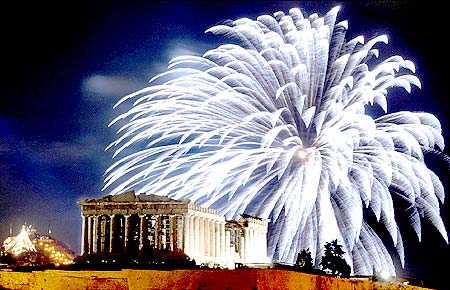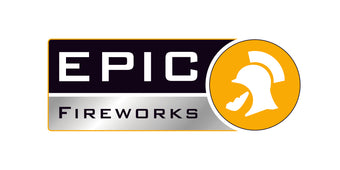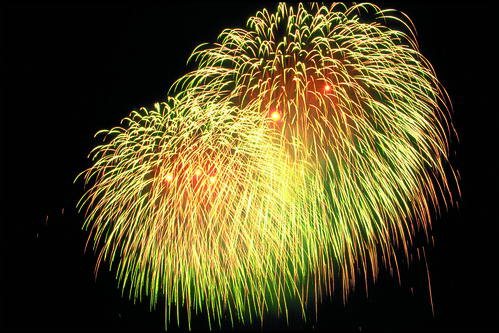
Greek Easter with Fireworks
Easter, or Pascha in Greek, is Greek Orthodox Church’s most important holiday of the year. This year is observed on April 19th. Preparation for Pascha begins with the season of Great Lent. In addition to fasting, almsgiving, and prayer, Orthodox Christians try to cut down on entertainment and non-essential worldly activities, gradually eliminating them until Great and Holy Friday, the most austere day of the year.
Traditionally, on the evening of Great and Holy Saturday, the Midnight Office is celebrated shortly after 11:00 p.m. At its completion, all light in the church building is extinguished, and all wait in darkness and silence for the stroke of midnight. Then, a new flame is struck in the altar, or the priest lights his candle from the perpetual lamp kept burning there, and he then lights candles held by deacons or other assistants, who then go to light candles held by the congregation. The priest reads a selection from the Gospel Book (Mark 16:1-8).
Then, in all traditions, the priest makes the sign of the cross. He and the people chant the Paschal Troparion, and all of the bells and semantra are sounded. In Greece, it is a custom for people to bring their own fireworks to the church which is lit when the priest says “Christ has Risen” around midnight. This tradition is also a reason for many accidents and in some cases deaths.

